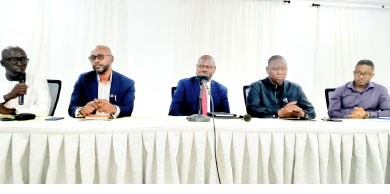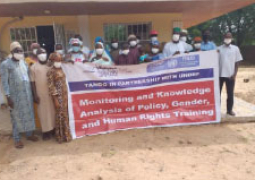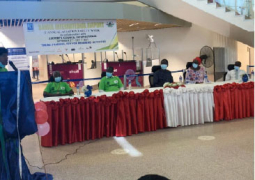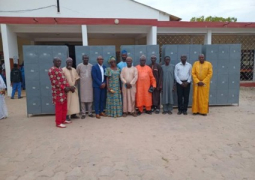
The twelve-day training is currently underway at Paradise Suites Hotel. Besides, the pilot training census is a comprehensive trial that tests all census procedure and thus involves testing all elements of a population and housing census operation prior to census enumeration. It therefore forms a critical component to producing quality data.
Welcoming the gathering, Nyakassi Sanyang, statistician general at the Gambia Bureau of Statistics (GBOS), acknowledged that it has been a long process and across many hurdles to reach this stage of the census.
The pilot census, he added, is a comprehensive trial that tests all census procedures and that it tests personnel, systems, and procedures in an end-to-end “dress rehearsal,” running through the entire process in a selected number of enumeration areas.
“Pilot census data are not expected to be statistically representative of the country’s population. However, pilot censuses produce data that can be useful in identifying potential issues. Furthermore, testing is fundamental when new technologies or methodologies are introduced in a census.”
This training, he added, will last for 12 days; 10 days in class training which includes the training on the administration of the census questionnaires, understanding the concepts and definitions, simulation exercises through the conduct of mock interviews in the various local languages and the use of Computer-Assisted Personal Interviewing (CAPI) for the first time in the country.
“The remaining two days will be field interviews to test the suitability of the questionnaires and the entire system.”
The Statistician general extended appreciation to their partners for their invaluable support provided since the start of the census activities, saying World Bank, UNFPA, UNECA, and the ECOWAS Commission have been supporting them in the smooth conduct of the exercise.
Lamin Camara, assistant UNFPA Country representative, acknowledged that the event signals their readiness and commitment for the conduct of the country’s 2024 population and housing census.
The population and housing census, he added, is a critical exercise that provides the government with information to pan and implement development initiatives as accurate data on size and demographics of the population is very instrumental in ensuring that development meets the needs of the population.
“This training, which prepares the ground for the commencement of the pilot census, is therefore a very important component of the 2023 population and housing census. As trainees and participants who will play a crucial role in the census, you will go down in history as pioneers of the first digital census in the Gambia.”
Camara acknowledged that the importance of census to UNFPA’s mandate cannot be overstated, as accurate and comprehensive data, made possible through initiatives like the pilot training, form the bedrock of evidence-based decision-making.
For his part, Seedy Keita, Minister for Finance acknowledged that housing is a major problem, particularly in urban areas where people live in crowded conditions.
“Planning for education obviously requires a knowledge of the number of children of school age who are likely to require schooling at various levels. The Government cannot know where to build the necessary schools or how many schoolteachers must be trained unless it knows where the need is great in terms of the number of children who should be going to school.”
Finance Minister reminded that for instance when government plans to improve and extend the medical services of the country so as to eliminate diseases and to reduce the number of children dying in infancy and early childhood, the government must know the number of people involved, the number of children being born and the rate at which they are dying.





